38 Everyday Scams That People Really Don't Notice
Nathan Johnson
Published
04/04/2021
in
wtf
This stuff is so normalized, and that's exactly how they get you.
Knowledge is power and being well-informed about some of the shady industry practices that go on behind closed doors can help keep you from being among the thousands of suckers born every minute.
Knowledge is power and being well-informed about some of the shady industry practices that go on behind closed doors can help keep you from being among the thousands of suckers born every minute.
- List View
- Player View
- Grid View
Advertisement
-
1.
 Having to pay $100+ for glasses
Having to pay $100+ for glasses -
2.
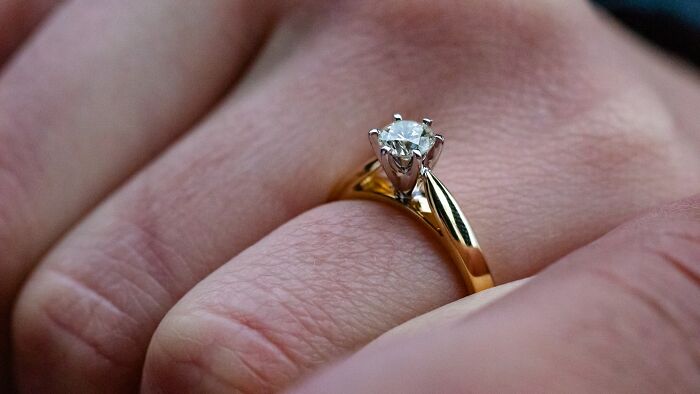 Diamond rings for marriage.
Diamond rings for marriage. -
3.
 Mobile game ads that show gameplay of a Call of Duty or Skyrim style game but in reality are just a spin-off of Candy Crush
Mobile game ads that show gameplay of a Call of Duty or Skyrim style game but in reality are just a spin-off of Candy Crush -
4.
 Funerals and everything to do with them. The funeral industry has insane pricing. Some of the funeral homes and vendors are even predatory, getting grieving families to pay upwards of tens of thousands of dollars, because “that’s what the deceased would have wanted”.
Funerals and everything to do with them. The funeral industry has insane pricing. Some of the funeral homes and vendors are even predatory, getting grieving families to pay upwards of tens of thousands of dollars, because “that’s what the deceased would have wanted”. -
5.
 Most mega churches... I remember an interview with Kenneth Copeland talking about how he needed a private jet to spread religion
Most mega churches... I remember an interview with Kenneth Copeland talking about how he needed a private jet to spread religion -
6.
 Manufacturers refusing documentation to private repair enterprises and requiring you to get your products fixed by the dealer. Basically, the reason for the "Right-to-repair" movement
Manufacturers refusing documentation to private repair enterprises and requiring you to get your products fixed by the dealer. Basically, the reason for the "Right-to-repair" movement -
7.
 Printer ink.
Printer ink. -
8.
 Planned obsolescence, where products are deliberatly designed to have a defect or worse performance shortly after the warranty has expired.
Planned obsolescence, where products are deliberatly designed to have a defect or worse performance shortly after the warranty has expired. -
9.
 Unpaid internships. F*ck anyone who gives unpaid internships! People get exploited like sh*t in that and for what? Most times they don't even count. For what purpose? I get so irritated when someone posts "unpaid but you'll be given a certificate". Shut the f*ck up and do the work by yourself you lazy ass.
Unpaid internships. F*ck anyone who gives unpaid internships! People get exploited like sh*t in that and for what? Most times they don't even count. For what purpose? I get so irritated when someone posts "unpaid but you'll be given a certificate". Shut the f*ck up and do the work by yourself you lazy ass. -
10.
 ''The customer is always right" Biggest scam of all- the customer is usually an idiot and looking to get free stuff.
''The customer is always right" Biggest scam of all- the customer is usually an idiot and looking to get free stuff. -
11.
 Reducing a price by 1 cent to trick our brains into thinking a product costs less than it actually is.
Reducing a price by 1 cent to trick our brains into thinking a product costs less than it actually is. -
12.
 The diamond industry, specifically as it relates to jewelry. Everything that the average person "knows" about it stems from propaganda and advertisements created by DeBeers. They aren't rare, they aren't worth what you pay for them, they don't appreciate in value and are a terrible investment. They aren't special.
The diamond industry, specifically as it relates to jewelry. Everything that the average person "knows" about it stems from propaganda and advertisements created by DeBeers. They aren't rare, they aren't worth what you pay for them, they don't appreciate in value and are a terrible investment. They aren't special. -
13.
 "If you tell me the truth, I won't get mad." -Mom
"If you tell me the truth, I won't get mad." -Mom -
14.
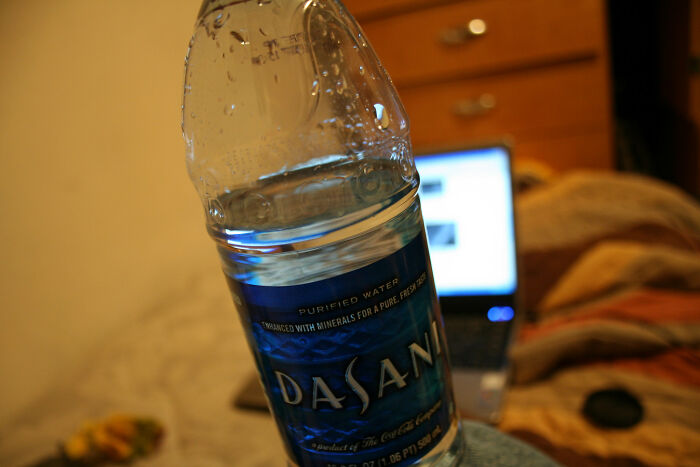 Bottled water, like Dasani. Especially in places like an amusement park that mark ups the price a shocking amount. Also the average markup of bottled water is 4000%, which is outrageous, bc water is literally free most places
Bottled water, like Dasani. Especially in places like an amusement park that mark ups the price a shocking amount. Also the average markup of bottled water is 4000%, which is outrageous, bc water is literally free most places -
15.
 The school picture industry. $80 for an awkward picture of my baby? Nah, thanks
The school picture industry. $80 for an awkward picture of my baby? Nah, thanks -
16.
 I just paid for the privilege of setting up my router.
I just paid for the privilege of setting up my router. -
17.
 Those registries that people pay money to “name a star”
Those registries that people pay money to “name a star” -
18.
 Cat food. Look at the cat food at a random store, and see how the design brags about all the healthy vegetables they've crammed into your obligate carnivore's diet. Then check out the ingredients and see how corn, rice, etc. are often the first ingredients. Pet foods market toward humans by trying to appeal to human sensibilities, not genuine desire to provide your cat with the best diet.
Cat food. Look at the cat food at a random store, and see how the design brags about all the healthy vegetables they've crammed into your obligate carnivore's diet. Then check out the ingredients and see how corn, rice, etc. are often the first ingredients. Pet foods market toward humans by trying to appeal to human sensibilities, not genuine desire to provide your cat with the best diet. -
19.
 Doing your own taxes, and paying to use a privately-owned software (or a service) when the government could totally do it for you, send you the details, and ask if it’s correct.
Doing your own taxes, and paying to use a privately-owned software (or a service) when the government could totally do it for you, send you the details, and ask if it’s correct. -
20.
 Lotteries
Lotteries -
21.
 Rent-to-own furniture and appliances.
Rent-to-own furniture and appliances. -
22.
 Scientific journal memberships.
Scientific journal memberships. -
23.
 Social media. From their happy beginnings they are now mostly a funnel used to ram as many advertisements into your mind as inhumanly possible. “Sponsored Posts” every third or fourth item - I see you, IG/FB/Red/etc. And that’s not even mentioning the extensive filtering network that “curates” the information you get to see when you are looking for something. “Curated information” is just a nice expression for you being conditioned to form certain opinions / buy more stuff. Social media groom minds
Social media. From their happy beginnings they are now mostly a funnel used to ram as many advertisements into your mind as inhumanly possible. “Sponsored Posts” every third or fourth item - I see you, IG/FB/Red/etc. And that’s not even mentioning the extensive filtering network that “curates” the information you get to see when you are looking for something. “Curated information” is just a nice expression for you being conditioned to form certain opinions / buy more stuff. Social media groom minds -
24.
 Paying for cable tv. The whole idea of paying was to create a revenue stream separate from that of marketing. There are a few out there (HBO, I think) but generally we pay to access the content and still have to spend 20% of the time sitting through commercials. Then streaming comes in and were free of advertisements again, for a bit. Now YouTube has tons of ads and other streaming services are talking about adding ads as well
Paying for cable tv. The whole idea of paying was to create a revenue stream separate from that of marketing. There are a few out there (HBO, I think) but generally we pay to access the content and still have to spend 20% of the time sitting through commercials. Then streaming comes in and were free of advertisements again, for a bit. Now YouTube has tons of ads and other streaming services are talking about adding ads as well -
25.
 Starbucks. I pay $9.99 for 51 oz of Folgers Ground Coffee, roughly 380 8 oz cups. That comes out to about $0.02 per cup of coffee. At Starbucks, a Tall Dark Roast costs $1.85. I could have 92.5 cups of Folgers at home before I pay for 1 Starbucks. My tub of Folgers is worth $703.00 if I were to sell it at the same price as Starbucks. AND I’m using reusable cups every day.
Starbucks. I pay $9.99 for 51 oz of Folgers Ground Coffee, roughly 380 8 oz cups. That comes out to about $0.02 per cup of coffee. At Starbucks, a Tall Dark Roast costs $1.85. I could have 92.5 cups of Folgers at home before I pay for 1 Starbucks. My tub of Folgers is worth $703.00 if I were to sell it at the same price as Starbucks. AND I’m using reusable cups every day. -
26.
 Idk if anyone remembers Power Balance bracelets from the early 2000s. A lot of celebrities and athletes advertised for them and they claimed to improve your balance and overall health. Well being a rubber bracelet made in a factory, it was all nonsense but they still sold millions of units before shutting down. A new company owns them now and you can still buy them though
Idk if anyone remembers Power Balance bracelets from the early 2000s. A lot of celebrities and athletes advertised for them and they claimed to improve your balance and overall health. Well being a rubber bracelet made in a factory, it was all nonsense but they still sold millions of units before shutting down. A new company owns them now and you can still buy them though -
27.
 The games at fairs/carnivals.
The games at fairs/carnivals. -
28.
 HOSPITALS OMG Lol ask them for an itemized bill (like everything they gave you and how much it costs) and they'll cut the bill down by like 50%.
HOSPITALS OMG Lol ask them for an itemized bill (like everything they gave you and how much it costs) and they'll cut the bill down by like 50%. -
29.
 College textbook prices. It's crazy how ridiculous expensive they are putting even more of a financial burden on students
College textbook prices. It's crazy how ridiculous expensive they are putting even more of a financial burden on students -
30.
 Internet Data Cap
Internet Data Cap -
31.
 Toothpaste commercial were actors filled their toothbrush with toothpaste too much which is unnecessary
Toothpaste commercial were actors filled their toothbrush with toothpaste too much which is unnecessary -
32.
 Annual college tuition increases. Why aren’t they held to a competitive pricing model as opposed to having to take out a mortgage to go to school? Everyone wants to talk about government paying for college education, but there is no conversation on why is it that expensive anyway? Especially when some unis have endowments in the billions that just the interest on those funds could literally pay the tuition for everyone that goes through the door.
Annual college tuition increases. Why aren’t they held to a competitive pricing model as opposed to having to take out a mortgage to go to school? Everyone wants to talk about government paying for college education, but there is no conversation on why is it that expensive anyway? Especially when some unis have endowments in the billions that just the interest on those funds could literally pay the tuition for everyone that goes through the door. -
33.
 Members of Senate, Congress, and Presidential candidates, collecting money from corporations, big donors, and hiding it in campaign accounts, Pac's and Super Pac's, and then doling it out as they like. They no longer act as a government of the people and for the people.
Members of Senate, Congress, and Presidential candidates, collecting money from corporations, big donors, and hiding it in campaign accounts, Pac's and Super Pac's, and then doling it out as they like. They no longer act as a government of the people and for the people. -
34.
 Ticketmaster
Ticketmaster -
35.
 often, the point isn't the not-noticing, but the having a lack of better alternatives
often, the point isn't the not-noticing, but the having a lack of better alternatives -
36.
 EVERY SINGLE PERSON on the Internet that sells some sort of „millionaire education“ . Every single one of them. They are all liars, most of them are not even rich to begin with! They fake it enough that some idiots buy it. You are customers to them. Nothing more.
EVERY SINGLE PERSON on the Internet that sells some sort of „millionaire education“ . Every single one of them. They are all liars, most of them are not even rich to begin with! They fake it enough that some idiots buy it. You are customers to them. Nothing more. -
37.
 Back to base security system monitoring Huge scam. My smart home security system alerts me faster than ADT ever did (biggest offenders) When you don’t answer the call, they will send out someone and will charge you a fee And every-time your system messes up, it will send false error codes to the monitoring station, which they will charge you a huge fee to fix And oh if you want to disconnect it, they guy i spoke to from ADT was going to charge me $250 call out + $50 for every 15 minutes he was at my house, and the job would of taken at least an hour he they said, they may need to go into the roof no i just called a security installation Electrictian and he said $50 call out and $30 for every 30 minutes he was there but that was depending on the type of job He was at my house for 5 minutes Power off Remove power wires from control box* Protect the wires so its safe Replace cover on control box Done He only charged $50. Compared to ADTs service which would of cost about $450
Back to base security system monitoring Huge scam. My smart home security system alerts me faster than ADT ever did (biggest offenders) When you don’t answer the call, they will send out someone and will charge you a fee And every-time your system messes up, it will send false error codes to the monitoring station, which they will charge you a huge fee to fix And oh if you want to disconnect it, they guy i spoke to from ADT was going to charge me $250 call out + $50 for every 15 minutes he was at my house, and the job would of taken at least an hour he they said, they may need to go into the roof no i just called a security installation Electrictian and he said $50 call out and $30 for every 30 minutes he was there but that was depending on the type of job He was at my house for 5 minutes Power off Remove power wires from control box* Protect the wires so its safe Replace cover on control box Done He only charged $50. Compared to ADTs service which would of cost about $450 -
38.
 The Verizon $1 scam. Verizon tacked on a $1 fee onto 8% of their customer's bills each month so over the course of the year, they did it to every customer, about 150,000,000. Their rationale was: 50% wouldn't notice and just pay the charge or would notice and wouldn't spend anytime fighting a $1 charge. 50% would notice the charge and call to have it removed. Of those, 35% would get frustrated while on the call and give up. This added approximately $120,000,000 to the bottom line each year (3 total) until caught. Once caught, they paid a $25,000,000 fine.
The Verizon $1 scam. Verizon tacked on a $1 fee onto 8% of their customer's bills each month so over the course of the year, they did it to every customer, about 150,000,000. Their rationale was: 50% wouldn't notice and just pay the charge or would notice and wouldn't spend anytime fighting a $1 charge. 50% would notice the charge and call to have it removed. Of those, 35% would get frustrated while on the call and give up. This added approximately $120,000,000 to the bottom line each year (3 total) until caught. Once caught, they paid a $25,000,000 fine.
- REPLAY GALLERY
-

- 38 Everyday Scams That People Really Don't Notice
- NEXT GALLERY
-
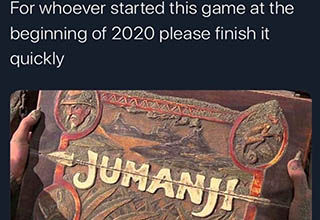
- Cool Pics & Memes to Entertain Your Brain (32 Pics)
Having to pay $100+ for glasses
38/38
1/38








11 Comments